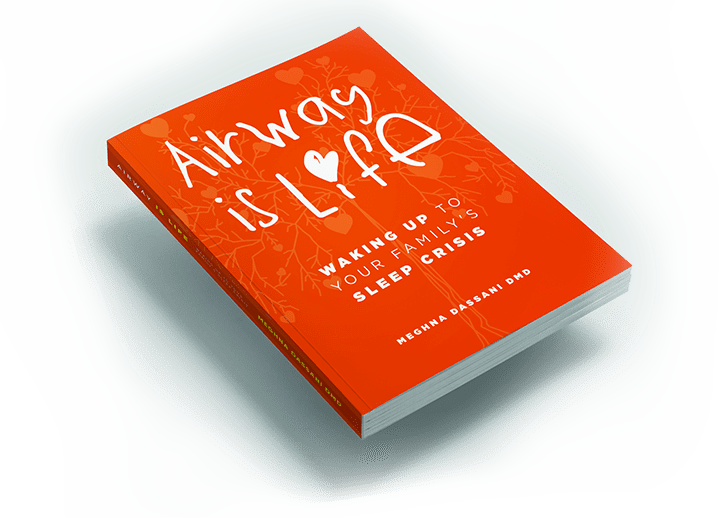Obesity and pediatric sleep apnea – A growing concern for children’s health
Sleep apnea is a common yet often undiagnosed sleep disorder in both adults and children. Sleep apnea is more frequently associated with adults. However, pediatric sleep apnea has gained significant attention in recent years, especially in relation to childhood obesity.
A growing body of research points toward a correlation between obesity and pediatric sleep apnea, shedding light on the relationship between the two conditions.
Understanding pediatric sleep apnea
Pediatric sleep apnea is characterized by temporary pauses in breathing during sleep. These pauses can occur multiple times throughout the night. They can disrupt sleep patterns and potentially leading to serious future health issues. These issues include cardiovascular problems, cognitive impairment, and an increased risk of accidents due to daytime sleepiness.
The most common type of childhood sleep apnea is obstructive sleep apnea (OSA). With OSA, children’s airways become partially or completely blocked during sleep, disrupting their breathing. These interruptions can be as brief as a few seconds or as long as a minute, and they can significantly impact children’s sleep quality and health.
Children with OSA may wake up gasping or choking for air. They may snore loudly or wake up feeling excessively tired and have trouble focusing throughout the day. They also may feel more irritable or be prone to mood disorders, such as anxiety and depression.
The childhood obesity factor
Childhood obesity has become a significant health concern in many parts of the world, especially the United States. According to data from the Centers for Disease Control and Prevention (CDC), obesity affected around 14.7 million children and adolescents aged 2-19 from 2017-2020.
The ramifications of childhood obesity are far-reaching and extend beyond physical health. Obese children are at increased risk of developing a range of serious health conditions, including type 2 diabetes, high blood pressure, and cardiovascular disease. Moreover, obesity during childhood can persist into adulthood, leading to continued health challenges and an increased risk of premature death.
The causes of childhood obesity are complex and multifaceted. They stem from a combination of genetic, environmental, and behavioral factors. Factors such as unhealthy eating, a lack of exercise, and limited access to nutritious foods all contribute to the prevalence of childhood obesity.
Studies have found that excess body weight, especially occurring around the neck and throat, can contribute to the narrowing of the airway, leading to increased occurrences of OSA. This is especially significant in children whose airways are naturally smaller, making them more susceptible to airway blockages.
Mechanisms behind obesity and pediatric sleep apnea
The connection between obesity and pediatric sleep apnea involves several mechanisms. One of the primary contributors is an increased size of the soft tissues in the throat and mouth, commonly associated with excess weight. This increase in size can lead to the obstruction of the upper airway during sleep, causing breathing difficulties and disruptions.
Additionally, obesity can contribute to inflammation and structural changes in the upper airway, further exacerbating children’s risk of sleep apnea. The accumulation of fat in the upper body, especially around the neck, can compress the airway, making it more prone to collapse during sleep. These factors collectively contribute to the onset and severity of sleep apnea in obese children.
Intervention and management strategies
The link between obesity and pediatric sleep apnea suggests that children would benefit from a treatment approach that addresses both conditions. Healthcare providers should learn more about the obesity-sleep apnea connection. Then, create a comprehensive treatment plan that includes a combination of lifestyle changes and medical treatments, such as the following:
Continuous positive airway pressure (CPAP) therapy
CPAP is a common and highly effective treatment option for sleep apnea. A CPAP machine delivers a steady stream of air through a mask worn during sleep. This keeps the airway open and prevents pauses in breathing.
Oral appliance therapy
Children with mild to moderate obstructive sleep apnea who don’t tolerate or respond well to CPAP therapy may benefit from oral appliance therapy. Oral appliances are custom-made to fit a child’s mouth and are designed to hold the jaw in a forward position during sleep to help keep the airway open.
Dietary changes
Parents of children with obesity and sleep apnea should focus on a balanced diet rich in fruits, vegetables, whole grains, and lean proteins. Limiting sugary drinks and snacks can help manage weight and improve children’s overall well-being.
Regular physical activity
Encourage children to engage in regular physical activity, such as sports, dancing, or active play, to help maintain a healthy weight and improve sleep quality.
Behavioral interventions
Cognitive-behavioral therapy (CBT) helps address behavioral factors that contribute to poor sleep hygiene, such as irregular sleep schedules or excessive screen time before bed.
Surgical options
In severe cases of sleep apnea, healthcare providers may recommend surgery to remove the tonsils or adenoids, which can obstruct the airway during sleep.
Treating pediatric obesity and sleep apnea early can significantly improve children’s quality of life and lower their chances of health issues later on. By understanding how these conditions are connected, parents and healthcare providers can help children get the care they need to sleep better and live healthier.
Dr. Meghna Dassani has practiced dentistry for over two decades and is passionate about the role dentists play in whole-body health. You can learn more at her website: MeghnaDassani.com.
Healthy Sleep Revolution Podcast
Snoring? Tired all day? Trouble focusing?
So many think these symptoms are common in kids and adults when tired. Join us as we debunk some of these common myths and put the spotlight on Sleep Apnea. Discover what constitutes healthy sleep and how we can help ourselves and our kids get the best sleep ever.


